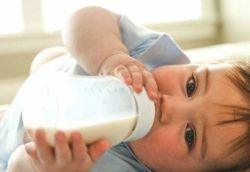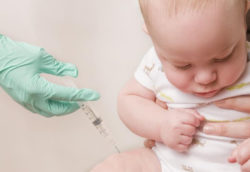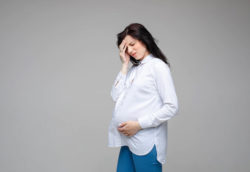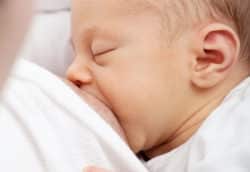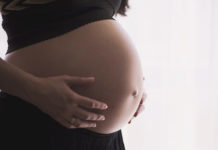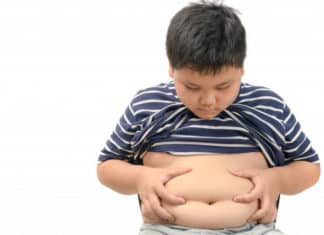The process of pregnancy and childbirth has undergone a revolution and all thanks to today’s technology. In today’s world, men and women are able to full-fill their desire to have an offspring. Improved living standards and modern health care are allowing women to be happy to start their families later in life.
Late pregnancy is on rising across the globe. A lot of couples are now dealing with their plan of having a baby due to several factors such as consolidating their relationship. Prioritizing career goals over life goals.
In this article we will focus on pregnancy right time and having a baby over 35.we will also give a brief idea on the pros and cons of having babies after 35.
Having a Baby After 35:

The number of women who are aged around 35 is giving birth for the first time is increasing day by day in many high-income countries. 35, according to a CDC report. In India too, about 30-35 percent of women are reportedly opting for late motherhood. This includes celebrity mothers too, from Aishwarya Rai Bachchan to Rani Mukerji, who had their first child after the age of 35.
Down the year line the average life expectancy for each and every woman was around 50,and a woman would be having her first baby in her late teens and would be considered elderly by 35 but thanks to today’s improved technology, living standards and modern health care which has given a means women to be happy and start their families later in life even after 35.
Recently the studies from the Centers for Disease Control and Prevention (CDC) indicate that in 2016, for the first time in three decades, birth rates among women aged 30 to 35 surpassed (R) than those among women aged 25 to 30 in the United States.
The average age that women are having their first child is currently at around 28 years of age, up from 26.4 in 2015 (R), and 26.3 in 2014. Experts often focus on average or mean maternal age due to the birth outcomes that are associated with the age of the mother, such as multiple births and congenital disabilities.
Factors Behind Having a Baby Over 35:

The studies have proved that the women are delaying their parenthood or giving their first baby after 35 due to many reasons, they are as follows
- women reaching higher education levels
- More prone to their career
- Improved methods of contraception (R)
- social and cultural shifts
- lack of childcare
- low benefit levels
- Inflexible workplace policies
- Economic or housing uncertainty
- Unemployment
- Improved fertility option like IVF, donor egg, surrogacy
- Advance Maternal age(AMA)
For more reason to hold off on motherhood, then the recent science may be good enough to show you the way ahead for a healthy life. An ongoing study called the New England Centenarian Study (R) has found that having a baby later in life can actually help you live longer. A research paper called Feeling Old vs Being Old: Associations Between Self-perceived Age and |(R) Mortality found that having a baby when you’re older can help you to have a life happier and more carefree life.
How to Have a Healthy Baby After 35?
There are certain ways where you can take care of yourself in order to have a healthy baby after 35 and reducing the risk of having a baby after 35. Scott Mac (R) Gregor, DO, Maternal-Fetal Medicine at Northshore has pointed a few brownie points of having a baby over 35
Talking to Your Doctor Before You Get Pregnant:
f you are planning to have a baby and you are around 35 then do refer or talk to the doctor once you start your family planning. Talk to your doctor about the current state of your health. The doctor can assess you only about your personal risks and can recommend the appropriate lifestyle change or ensure you at optimal health prior to getting pregnancy further.
Have a Checkup Early and Regular:
When you are planning to have a healthy baby after 35 then you need to see your doctor in a regular basis and as early as you can before your age climbs up to a risk factor. The early stage is too crucial for any women. The doctor can assess your pregnancy and medical status in the early months and provide you with information which will guide you throughout the process of pregnancy (R)
Take Prenatal Vitamins:
This is an important factor to consider in order to have a healthy baby after 35. Prenatal vitamins should contain at least 400 micrograms of folic acid by each and every pregnant woman daily. Having the minimum amount of folic acid as perceived by a doctor before pregnancy and during the first trimester helps to prevent birth defects that include brain and spinal cord. Even If you are not yet pregnant and are planning a family, can start with prenatal vitamins or folic acid.
Healthy lifestyle choice:
It is quite important to maintain adequate hydration and avoid overexertion during pregnancy that can only decrease the level of risk of having a baby after 35. Cigarettes, alcohol and illicit drugs should be avoided during this phase of life in order to have a healthy lifestyle choice for babies after 35. Over-the-counter medications and herbal medicines should be avoided too during pregnancy in order to make a healthy lifestyle choice you may do a certain activity like Moderate exercise, walking, swimming, yoga, etc.
Eat a Healthy Diet:
Eating a healthy diet or well-balanced diet is very much important factor in order having a baby over 35. The food will give you a lot of variety of vitamins and minerals that the body need during pregnancy. At the time of pregnancy, the body needs more folic acid, calcium, iron, vitamin D and other essential nutrients in order to have a healthy baby. Taking plenty of fruits and veggies, whole grains, beans, lean meats, and low-fat dairy products will keep a balanced diet.
Gain Weight Wisely:
The pregnant mother should gain weight wisely that should support the baby weight. Even make sure you shed the extra pound that you gain during pregnancy time. The women with a normal BMI Should gain between 25-30 pounds during pregnancy. Gaining the appropriate amount of weight lessens the chance of your baby growing slowly and reduces the risk of preterm birth. The risk of developing pregnancy problems such as gestational diabetes and high blood pressure (R)
Avoid Risky Substances:
Any kind of risky substances like alcohol, tobacco, and illegal drugs should be off during pregnancy. Drinking alcohol or any substance that affects health will increases your baby’s risk for a wide range of mental and physical defects. Smoking increases the chance for delivering a low birth-weight baby, which is more common in older women or having a baby over 35. not too prone to smoking can also help prevent preeclampsia.
Stay active:
Regular physical activity will keep your pregnancy weight healthy and can help to ease or even prevent discomfort, boost your energy level and improve your overall health condition. It prepares for labor and childbirth by increasing your stamina and muscle strength of a pregnant mother after 35. Get your health care condition ok before starting an exercise program.
Learn about the prenatal testing for chromosomal abnormalities:
Consult your doctor about prenatal cell-free DNA (cfDNA) screening. This is a method to screen for certain chromosomal abnormalities in a developing baby during the phase of pregnancy.DNA from the mother and fetus is extracted from a maternal blood sample and screened for the increased chance for specific chromosome problems during pregnancy. Certain abnormality like Down syndrome, trisomy 13 and trisomy 18. The tests such as chorionic villus sampling and amniocentesis provide information about the baby’s chromosomes or the risk of specific chromosomal abnormalities.
Pregnancy after 35 Risk Factor:

None of the pregnant women wants to hear the words “high-risk pregnancy,” if you’re over 35, the American College of Obstetricians and Gynecologists (ACOG) says that you are, just by nature of your age. But is being of “advanced maternal age” doesn’t that make you feel good that there is no risk factor anymore.
There are some risks to older moms babies after 35, the most significant is being infertility. The ACOG says that “fertility in women starts to decrease at age 32”. At what of age 35 you have a 52-percent chance of becoming pregnant unaided and by age 40 that drops to 36 percent, and by age 45 you’re down to 5 percent. So now lets us do in deep of the various pregnancy risk factor that can arise if pregnancy has not occurred in right times
Decline in Fertility:
Women s are born with egg to fertility for giving birth to babies. But with a course of time around the mid to late 30s, the eggs decrease in quantity and quality. The Fertility also declines in men with age due to declining sperm counts, motility, and semen volume. The age-related factors combined can make it more difficult for women to become pregnant or having a first baby over 35.
The older women’s eggs aren’t fertilized as easily as younger women’s eggs studies have found it. If you are older than age 35 and haven’t been able to conceive for six months, then do refer to your health care provider guidance. The journal published in The New England Journal of Medicine (R) found that among women who received artificial insemination, 74 percent of those under 31 years old were pregnant within a year. However, this decreased to 61 percent of individuals between the ages of 31 to 34, and it further declined to 54 percent of women aged 35 and over.
Genetic risk:
One of the pregnancy risk factors that is associated with pregnancy or having a healthy baby after 35 is a genetic risk. A study published set out to investigate why older mothers have a heightened risk of giving birth to children with congenital anomalies that are characterized by abnormal chromosome numbers.
Researchers according to the Albert Einstein College of Medicine of Yeshiva University in New York learned that “the genetic process of recombination could be responsible for the increased risk of conditions such as Down syndrome”.
The rate of an embryo having Down syndrome at the 10-week mark of pregnancy is 1 in 1,064 (R) at age 25, this rises to 1 in 686 at age 30 and 1 in 240 by the age of 35 years. At the age of 40, the Down syndrome rate increases still to 1 in 53, and down to 1 in 19 embryos at age 45.
The recombination may be less regulated in older mothers, which may lead to abnormal chromosome numbers in sex cells or large chromosomal rearrangements. This is the major change happen in the process of recombination.
Miscarriage:
The risk of miscarriage climbs gradually increase with the mother’s age. Research published in the BMJ showed that risk of miscarriage (R) is around 8.9 percent for women aged 20 to 24 years and increases to 74.7 percent for individuals aged 45 years or above. The declining quality of women’s eggs is to be responsible for the higher rates of miscarriage.
Still Birth:
The risk of stillbirth increases as age climbs up in case of older women.
As per Canadian Medical Association Journal found that “stillbirth (R) is around 1.2 to 2.23 times higher in older women”. the risk of pregnancy loss is higher because of pre-existing medical conditions or fetal chromosomal abnormalities.
Women aged 35 years and older are often recommended to be induced the increasing risk of stillbirth with gestational age. Around 1 in 1,000 (R) women under 35 years old have a stillbirth during 39 and 40 weeks of gestation, compared with 1.4 in 1,000 women aged 35 to 39, and 2 in 1,000 women at age 40 and above.
C-Section:
The mothers after 35 have a higher risk of pregnancy-related complications or risk that might lead to a C-section delivery. The C-section complication is a condition in which the placenta blocks the cervix (placenta previa).
Develops Gestational Diabetes:
Gestational diabetes (R) is the type of diabetes that occurs during pregnancy in the case of older women. In order to avoid gestational diabetes, there should be a tight control of blood sugar. Without untreated, gestational diabetes can cause a baby to grow significantly larger than the average baby. Gestational diabetes can also increase the risk of premature birth, high blood pressure during pregnancy, and complications to your baby even after delivery.
Develop High Blood Pressure:
High blood pressure is more common in older women during pregnancy. The pregnant women who are having the first baby after 35 should regularly consult a doctor or keep on checking about the blood pressure as that can increase the risk factor of pregnancy.
Pros cons Having Baby after 35

There are certain pros cons of having a baby after 35, such as
Pros:
- Nowadays the Mothers can focus and get more settled in their careers and are ready to take on the responsibility of having a child after delivery too.
- The older mother is too good enough in maturity to cope with the stress of raising a child.
- Nowadays mother is less prone to post-natal depression.
- The babies are much better in ability test in case of an older mother than the normal baby.
- The older mothers breastfeed their babies than younger mothers which as a result gives the baby proper nutrition and protect against illness.
- The menopause passes easier or may occur later in case of older women which as a result reduce the level of labour pain.
Cons:
- A child of a “ 35-45-year-old mother is three times more likely to develop diabetes than a baby born to a 20-year-old”.studies proved.
- A mother whose age is 35 and above have a 1 in 440 chance of their child being stillborn, compared to 1 in 1,000 for younger women as per Medical News Today
- Women over 35 are at higher risk for developing high blood pressure and gestational diabetes as also mention in above of the article.
- Late women have a higher rate of cesarean sections.
- Women 35 and older have an increased chance of giving birth to a child with a genetic defect, such as Down Syndrome and other related chronically diseases.
In today’s world, men and women are able to full-fill their desire to have an offspring or babies after 35. Improved living standards and modern health care are allowing women to be happy to start their families later in life. All thanks to today’s technology. Before you plan baby does refer to your doctor as they can give you complete details on your age-appropriate complication and care.


















